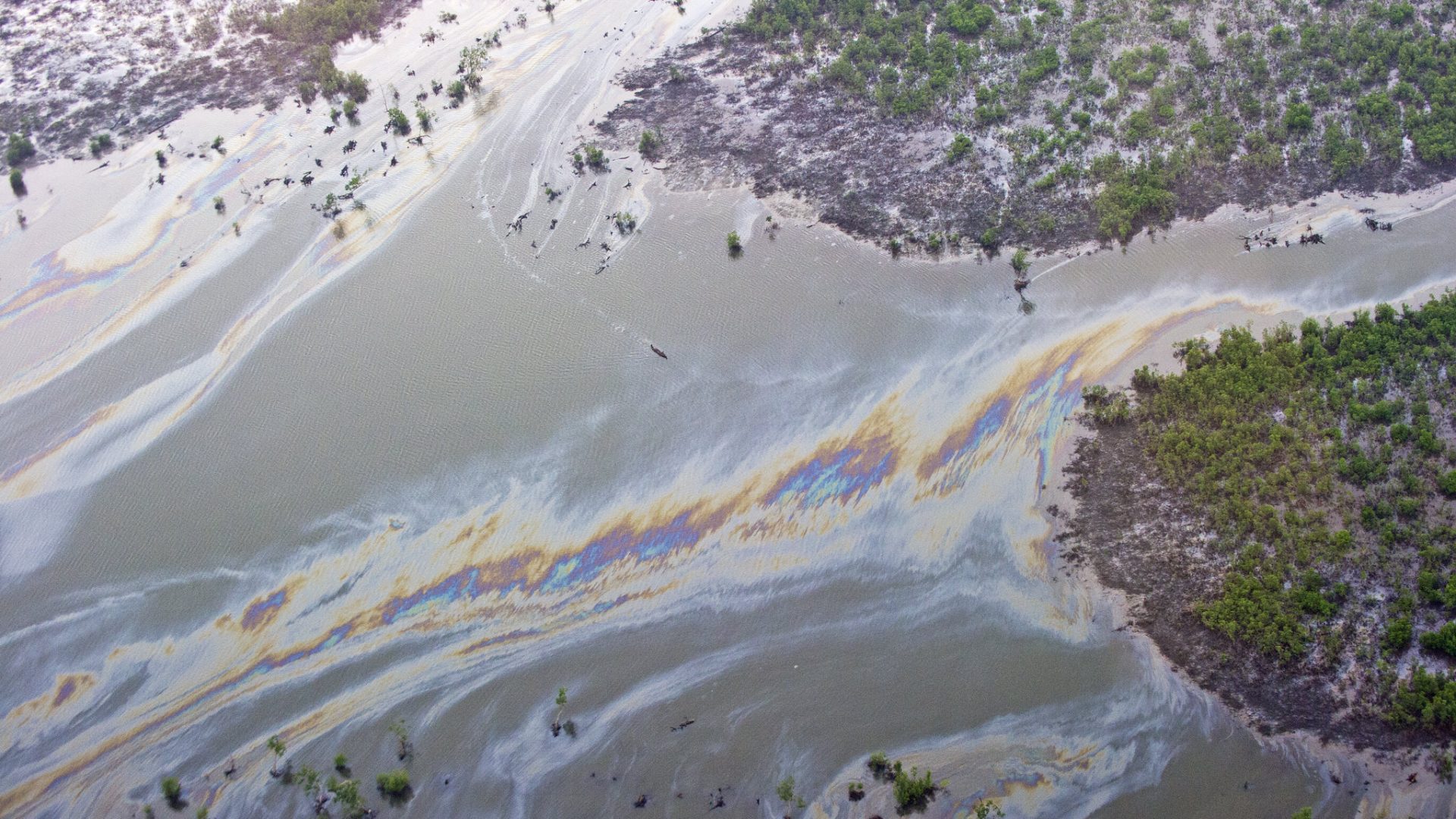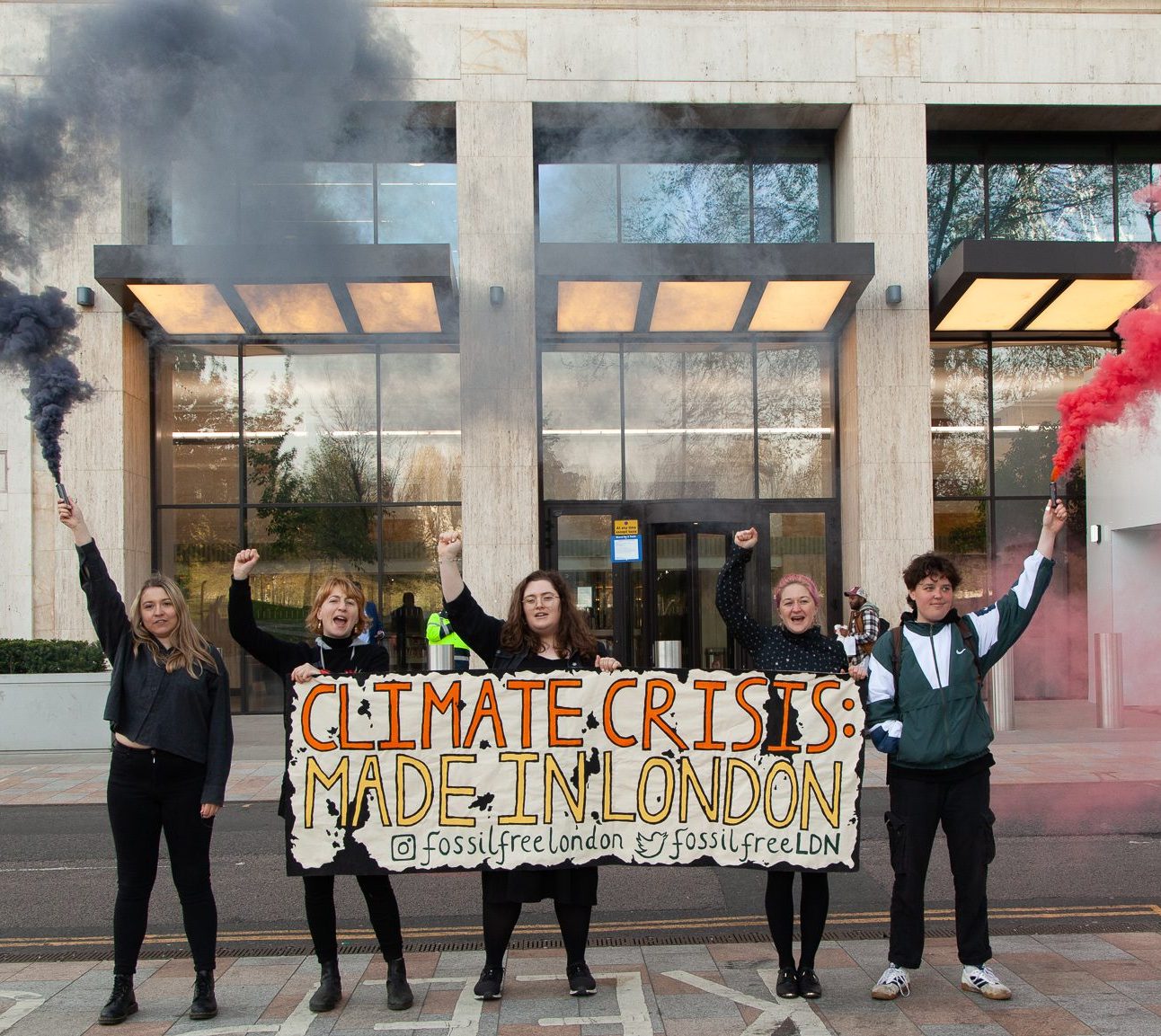
Shell
Our analysis reveals how Shell’s climate plans fail to align with international commitments to phase out fossil fuels and to limit global temperature rise to 1.5ºC.
How does Shell stack up?
Table Key
- Grossly insufficient
- Insufficient
- Partially aligned
- Close to aligned
- Fully aligned
Ambition: Drilling for More Oil and Gas
Shell does not have a date set to stop exploration, stop approving new extraction projects, or end oil and gas production. Shell has not set a rapidly declining fossil fuel production target, and therefore its plans are dangerously out of step with climate goals.
Shell plans to keep oil production “stable” until 2030 while growing gas production, with a target to increase liquefied fossil gas production and sales by 20 to 30 percent. Shell continues to explore for more oil and gas in 24 countries, and has approved at least 20 new oil and gas extraction projects since May 2021, which is when a Dutch court ordered Shell to align its business plans with the Paris Agreement.
It’s unthinkable to approve any new fossil fuel development when the majority of oil, gas, and coal in existing fields and mines must stay underground to keep warming to globally agreed limits.
Historical Responsibility
-
4 th
Shell's Rank
for most cumulative climate pollution in history among ALL investor-owned companies.
Source: Carbon Majors
-
40.7 billion
Tonnes of CO2e Pollution
linked to Shell’s fossil fuel production since the 1890s.
Source: Carbon Majors
-
$ 1.1 trillion
Amount Shell Would Owe
if the company were held partially accountable for the climate loss and damages caused by its pollution since 1985 alone.
Source: Climate Analytics
Shell CEO, Wael Sawan“What would be dangerous and irresponsible is cutting oil and gas production…”
Integrity: Failing Climate Targets
Do Shell’s actions add up to a credible pathway to 1.5°C?
Shell has not set comprehensive targets to ensure its total emissions decline rapidly and consistently.
Shell’s emissions reduction pledges fall short of what is needed this decade and beyond to align with 1.5°C. Shell has no target for reducing its total climate pollution until 2050. Shell’s 2030 emissions reduction target covers only about 5 percent of the company’s total emissions.
To meet its climate targets, Shell plans to rely on the ‘net’ in ‘net zero’ – investing in carbon capture and carbon offsets, which may prolong the life of fossil fuels, have a long track record of failure, and perpetuate injustice. Instead, oil and gas companies should take responsibility for reducing their oil and gas extraction and sales as rapidly as possible.
Meanwhile, there is evidence that Shell is lobbying against climate action, greenwashing, and otherwise maneuvering to undermine the energy transition.
At a glance
-
2021
Year of historic climate ruling against Shell
In May 2021, a Dutch court ordered Shell to take responsibility for its ongoing climate pollution. Since then, Shell has approved at least 20 new oil and gas extraction projects.
Source: OCI & Milieudefensie
-
25
Industry associations lobbying against climate action
Shell is a member of 25 industry associations that are “Misaligned” on climate policy as of May 2024.
Source: Influence Map
People-Centered Transitions: Inadequately Preparing
While many companies have co-opted the language of ‘just transition’ from labor and climate justice movements in recent years, Shell rates respectively “Grossly Insufficient” and “Insufficient” on its real-world just transition plans and on upholding human rights.
According to independent analysis, Shell has inadequate just transition and human rights policies. The company states that it “recognizes” the principle of Free, Prior, and Informed Consent, but does not commit to obtaining such consent.
Importantly, Shell’s current policies in these areas must be considered in the context of Shell’s history of pollution and alleged complicity in human rights abuses in the Niger Delta, one of the most oil-polluted places on earth.

Londoners call to “Shut Down Shell"
Since Shell moved its headquarters from The Hague to London in 2021, Fossil Free London has organized community opposition across the city.
Stand up to Shell’s lawsuit against Greenpeace!
Shell has sued Greenpeace UK after a peaceful protest against the company. In response, people are writing to Shell’s CEO, Wael Sawan. Will you join them?

